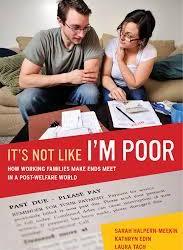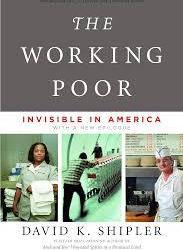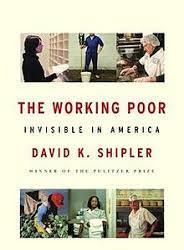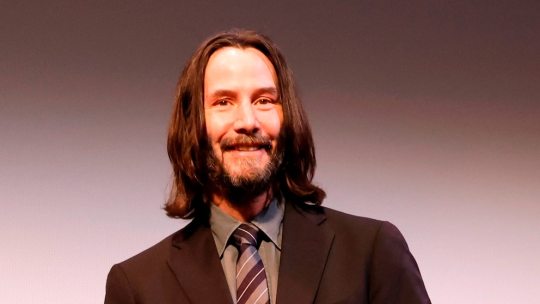#federal employment attorney
Explore tagged Tumblr posts
Text
MSBP Appeals Attorney
The Federal Practice Group provides experienced legal representation for individuals navigating the complex process of Merit Systems Protection Board (MSPB) appeals. With a dedicated MSPB Appeals Attorney on your side, you can effectively challenge adverse employment actions, including wrongful termination, demotions, or other workplace injustices. Our attorneys bring in-depth knowledge of federal employment laws and MSPB procedures to ensure your case is handled with precision and care.

0 notes
Text
California AG: 'A Law-Abiding President...Shouldn't Be Too Much To Ask For'
youtube
#P01135809#felon#convicted felon trump#convicted felon donald trump#inmate P01135809#forbes#forbes list#forbes breaking news#white collar crime#insurrection#mar a lago#tax fraud#new york#convicted felon#ineligible for federal employment#california#donald j. trump#donald john trump#attorney general#two tier justice#justice#Youtube
1 note
·
View note
Text
Trump got absolutely dumpstered in court in the last few days.
His and Elon's program to pay people to retire early has been halted by a temporary restraining order issued by District Judge George A. O’Toole Jr. of the US District Court, District of Massachusetts in American Federation of Government Employees et al v. Charles Ezell (acting Acting Director of the Office of Personnel Management). This temporary order only lasts until they have a hearing on Monday to determine whether this program is constitutional.
13 state attorneys general sued to prevent Elon from accessing personal data about government employees and citizen clients of their agencies, leading to Judge Colleen Kollar-Kotelly in the case Alliance for Retired Americans v. Scott Bessent (Trump's Secretary of the Treasury) ordering the Department of Justice to ensure no unauthorized persons, including Elon and his team, have access to the Labor Department's database of information on tax filings, employment, and the like.
Two separate judges have ruled that Trump's executive order trying to eliminate birthright citizenship under the 14th Amendment is unconstitutional. U.S. District Judge John Coughenour of the western Washington district, a REAGAN appointee (!), said, "It has become ever more apparent that to our president the rule of law is but an impediment to his policy goals. The rule of law is, according to him, something to navigate around or simply ignore, whether that be for political or personal gain." The other judge, US District Judge Deborah Boardman of Maryland, ruled that the executive order cannot be implemented until she has had a chance to rule on the merits of the case.
US District Court Judge Royce C. Lamberth in DC paused Trump’s restrictions on transgender women being incarcerated in women’s prisons and federal prisons providing gender-affirming medical treatment, after inmates (!) sued to block the policy.
US District Judge Loren L. Alikhan of DC broadly blocked the Trump administration’s memo halting almost all federal assistance.
That's six rulings scrapping five of Trump's major policy operations in the past four days (Feb 3rd through the 6th, 2025).
That's news worth celebrating!
#politics#us politics#trump#american politics#uspol#resistance#judicial resistance#the courts#law and order
12K notes
·
View notes
Text
Things the Biden-Harris Administration Did This Week #38
Oct 11-18 2024
President Biden announced that this Administration had forgiven the student loan debt of 1 million public sector workers. The cancellation of the student loan debts of 60,000 teachers, firefighters, EMTs, nurses and other public sector workers brings the total number of people who's debts have been erased by the Biden-Harris Administration using the Public Service Loan Forgiveness to 1 million. the PSLF was passed in 2007 but before President Biden took office only 7,000 people had ever had their debts forgiven through it. The Biden-Harris team have through different programs managed to bring debt relief to 5 million Americans and counting despite on going legal fights against Republican state Attorneys General.
The Federal Trade Commission finalizes its "one-click to cancel" rule. The new rule requires businesses to make it as easy to cancel a subscription as it was to sign up for it. It also requires more up front information to be shared before offering billing information.
The Department of Transportation announced that since the start of the Biden-Harris Administration there are 1.7 million more construction and manufacturing jobs and 700,000 more jobs in the transportation sector. There are now 400,000 more union workers than in 2021. 60,000 Infrastructure projects across the nation have been funded by the Biden-Harris Bipartisan Infrastructure Law. Under this Administration 16 million jobs have been added, including 1.7 construction and manufacturing jobs, construction employment is the highest ever recorded since records started in 1939. 172,000 manufacturing jobs were lost during the Trump administration.
The Department of Energy announced $2 billion to protect the U.S. power grid against growing threats of extreme weather. This money will go to 38 projects across 42 states and Washington DC. It'll upgrade nearly 1,000 miles worth of transmission lines. The upgrades will allow 7.5 gigawatts of new grid capacity while also generating new union jobs across the country.
The EPA announced $125 million to help upgrade older diesel engines to low or zero-emission solutions. The EPA has selected 70 projects to use the funds on. They range from replacing school buses, to port equipment, to construction equipment. More than half of the selected projects will be replacing equipment with zero-emissions, such as all electric school buses.
The Department of The Interior and State of California broke ground on the Salton Sea Species Conservation Habitat Project. The Salton Sea is California's largest lake at over 300 miles of Surface area. An earlier project worked to conserve and restore shallow water habitats in over 4,000 acres on the southern end of the lake, this week over 700 acres were added bring the total to 5,000 acres of protected land. The Biden-Harris Administration is investing $250 million in the project along side California's $500 million. Part of the Administration's effort to restore wild life habitat and protect water resources.
The Department of Energy announced $900 Million in investment in next generation nuclear power. The money will help the development of Generation III+ Light-Water Small Modular Reactors, smaller lighter reactors which in theory should be easier to deploy. DoE estimates the U.S. will need approximately 700-900 GW of additional clean, firm power generation capacity to reach net-zero emissions by 2050. Currently half of America's clean energy comes from nuclear power, so lengthening the life space of current nuclear reactors and exploring the next generation is key to fighting climate change.
The federal government took two big steps to increase the rights of Alaska natives. The Departments of The Interior and Agricultural finalized an agreement to strengthen Alaska Tribal representation on the Federal Subsistence Board. The FSB oversees fish and wildlife resources for subsistence purposes on federal lands and waters in Alaska. The changes add 3 new members to the board appointed by the Alaska Native Tribes, as well as requiring the board's chair to have experience with Alaska rural subsistence. The Department of The Interior also signed 3 landmark co-stewardship agreements with Alaska Native Tribes.
The Department of Energy announced $860 million to help support solar energy in Puerto Rico. The project will remove 2.7 million tons of CO2 per year, or about the same as taking 533,000 cars off the road. It serves as an important step on the path to getting Puerto Rico to 100% renewable by 2050.
The Department of the Interior announced a major step forward in geothermal energy on public lands. The DoI announced it had approved the Fervo Cape Geothermal Power Project in Beaver County, Utah. When finished it'll generate 2 gigawatts of power, enough for 2 million homes. The BLM has now green lit 32 gigawatts of clean energy projects on public lands. A major step toward the Biden-Harris Administration's goal of a carbon pollution-free power sector by 2035.
Bonus: President Biden meets with a Kindergarten Teacher who's student loans were forgiven this week
#Thanks Biden#Joe Biden#kamala harris#student loans#click to cancel#politics#US politics#american politics#native rights#jobs#the economy#climate change#climate action#Puerto Rico
2K notes
·
View notes
Text
Musk steals a billion dollars from low-income Americans and sends it to Intuit

I'm about to leave for a 20+ city book tour for my new novel PICKS AND SHOVELS. Catch me on Feb 14 in BOSTON for FREE at BOSKONE , and on Feb 15 for a virtual event with YANIS VAROUFAKIS. More tour dates here.

Let me tell you about the most wasteful US federal government spending I know about. It's a humdinger. You and everyone you know are mired in it for weeks, or perhaps months, every year. It will cost you, personally, thousands of dollars over your lifetime. I'm talking about filing your taxes.
Not paying your taxes. Paying your taxes is fine. It keeps the country running, though not because the government needs our "tax dollars" to pay for things. The government annihilates the money it taxes away from us, and creates new money to pay for programs. The USA needs US citizens' dollars to build highways the same way Starbucks needs its Starbucks gift cards to make lattes – that is, not at all:
https://theglobepost.com/2019/03/28/stephanie-kelton-mmt/
I'm talking about filing your taxes. In nearly every case, a tax return contains a bunch of things the IRS already knows: how much interest your bank paid you, how much your employer paid you, how many kids you have, etc etc. Nearly everyone who pays a tax-prep place or website to file their tax return is just sending data to the IRS that the IRS already has. This is insanely wasteful.
In most other "advanced" countries (and in plenty of poorer countries, too), the tax authority fills in your tax return for you and mails it to you at tax-time. If it looks good to you, you just sign the bottom and send it back. If there are mistakes, you can correct them. You can also just drop it in the shredder and hire an accountant to do your taxes for you, if, for example, you run a small business, or are self-employed, or have other complex tax needs. A tiny minority of tax filers fall into that bucket, and they keep the tax-prep industry in other countries alive, albeit in a much smaller form than in the USA.
In the US, we have a duopoly of two gigantic tax-prep outfits: H&R Block, and Intuit, owners of Turbotax. These companies make billions from low-income, working Americans every year, charging them to format a bunch of information the IRS already has, and then sending it to the IRS on their behalf. These companies lobbied like crazy for the right to tax you when you pay your taxes.
In 2003, it looked like the IRS would start sending Americans pre-completed returns, so H&R Block and Turbotax went into lobbying overdrive, whipping up a "public private partnership" called the "Free File Alliance," that promised to do free tax prep for most Americans. But once the threat of IRS free filing was killed, they turned Free File into a sick joke. Americans who tried to use Free File were fraudulently channeled into filing products that cost money – sometimes hundreds of dollars – to use, a fact that was only revealed after the taxpayer had spent hours keying in their information. Free File sites were also used to peddle unrelated financial products to tax filers, with deceptive language that implied that buying these services was needed to file your return:
https://www.propublica.org/article/inside-turbotax-20-year-fight-to-stop-americans-from-filing-their-taxes-for-free
The big winner from the Free File scam was Intuit, which bought Turbotax in 1993. They made about one billion dollars per year ripping off Americans they'd promised to file free tax returns for. After outstanding work by Propublica, lawmakers and the IRS were finally pressured to create an IRS-based free filing service that would cut Intuit out of the loop. Intuit went on a lobbying blitz without parallel, giving out $3.5m in bribes in 2022 in a bid to kill the Treasury Department's study of a free filing service:
https://pluralistic.net/2023/02/20/turbotaxed/#counter-intuit
In 2022, nearly every US state attorney general settled their lawsuits against Intuit for the Turbotax ripoff, bringing in $141m:
https://www.agturbotaxsettlement.com/Home/portalid/0
In 2023, the FTC won a case against Intuit over the scam:
https://www.ftc.gov/business-guidance/blog/2023/09/nine-takeaways-initial-decision-intuit-turbotax-action
But Intut was undeterred. They came back in 2023 with a campaign to say that ripping off American tax-filers was antiracist and anyone who wanted the IRS to make filing free was, therefore, a racist:
https://pluralistic.net/2023/09/27/predatory-inclusion/#equal-opportunity-scammers
Strangely, no one bought that one. By May, 2023 the IRS had announced its own, in-house free file program:
https://pluralistic.net/2023/05/17/free-as-in-freefile/#tell-me-something-i-dont-know
Now, no one is forcing you to use this program. Do you have a family accountant that your grandparents started using in the Eisenhower administration? Just keep going to them. Do you like using Turbotax? Keep using it! Wanna do your own taxes? Here's the forms:
https://www.irs.gov/pub/irs-pdf/f1040s.pdf
But if you want to file your taxes for free, and you earn $125,000/year or less, here's the IRS's service:
https://www.irs.gov/filing/irs-direct-file-for-free
Better use it quick, though. Elon Musk has just announced that he's killing it. Yeah, I know, no one elected him. That doesn't seem to matter to anyone, least of all Democrats on the Hill, who are still showing up for work every day and trying to engender a "spirit of comity" rather than screaming and throwing eggs:
https://apnews.com/article/irs-direct-file-musk-18f-6a4dc35a92f9f29c310721af53f58b16
Musk called IRS free file a "far left" program and announced that he had "deleted it." By the way, the median Trump voter's income is about $72k, meaning more than half of Trump voters qualified for free file:
https://fivethirtyeight.com/features/the-mythology-of-trumps-working-class-support/

If you'd like an essay-formatted version of this post to read or share, here's a link to it on pluralistic.net, my surveillance-free, ad-free, tracker-free blog:
https://pluralistic.net/2025/02/11/doubling-up-on-paperwork/#rip-freefile

Image: Wcamp9 (modified) https://commons.wikimedia.org/wiki/File:Elon_Musk_-_March_28,_2024_%28cropped%29.jpg
CC BY 4.0 https://creativecommons.org/licenses/by/4.0/deed.en
574 notes
·
View notes
Text
ReproductiveRights.Gov Information
Copied all of the information off of ReproductiveRights.Gov using the WayBackMachine (<3) seeing as it's gone now. I don't know how much of it will hold in the coming days but it's still important now. If you want to see the website here's a link that works (as of 21/1/25), and if it stops I copied all the info below the cut.
YOUR RIGHTS
Update on Medication Abortion
On June 13, the Supreme Court issued a unanimous decision holding that the plaintiffs in FDA v. Alliance for Hippocratic Medicine lacked standing to challenge FDA’s actions. Mifepristone—which FDA approved as safe and effective more than 20 years ago—remains available under the conditions of use approved by FDA.
The Biden-Harris Administration remains committed to protecting reproductive rights, ensuring women can make their own decisions about their own bodies, and preserving the FDA’s authority to make science-based determinations about what medications are safe and effective. Read statements from President Joe Biden, Attorney General Merrick Garland, and Health and Human Services Secretary Xavier Becerra.
Know Your Rights: Reproductive Health Care
Reproductive health care, including access to birth control and safe and legal abortion care, is an essential part of your health and well-being. While Roe v. Wade was overturned, abortion remains legal in many states, and other reproductive health care services remain protected by law. The U.S. Department of Health and Human Services (HHS) is committed to providing you with accurate and up-to-date information about access to and coverage of reproductive health care and resources. Our goal is to make sure you have appropriate information and support.
Your Reproductive Rights
Below you will find information on your right to access reproductive health care, what your health insurance is required to cover, and where to go if you need health insurance.
Whether you get coverage through your employer, Medicaid, HealthCare.gov, or elsewhere in the private insurance market, most plans cover family planning counseling, birth control, and other preventive services at no additional cost to you. Federal law allows federally-funded health coverage (like Medicaid) to cover abortion in some situations, and some private health insurance plans also cover abortion care.
Your Right to Emergency Care
In light of the Supreme Court's decision to overturn Roe v. Wade, it's more important than ever that you know your rights on receiving emergency medical care.
The Emergency Medical Treatment and Labor Act (EMTALA) requires Medicare-participating hospital emergency departments to offer any person who requests it an appropriate medical screening examination within the capability of the hospital’s emergency department.
If the hospital determines that you have an emergency medical condition, federal law requires the hospital to offer you treatment until your emergency medical condition is stabilized, or an appropriate transfer to another hospital if you need it.
An emergency medical condition includes any medical condition manifesting itself by acute symptoms and that, in the absence of immediate medical attention, could reasonably be expected to place the person’s health in serious jeopardy. Emergency medical conditions involving pregnant patients may include, but are not limited to, ectopic pregnancy, complications of a pregnancy loss, or emergent hypertensive disorders, such as preeclampsia with severe features. In some instances, the treatment reasonably necessary to stabilize a pregnant woman’s emergency medical condition may be an abortion.
These federal rights preempt any directly conflicting state laws or mandates that apply to specific procedures.1
To learn more click here.
1 Please note: pursuant to the injunction in Texas v. Becerra, No. 5:22-CV-185-H (N.D. Tex.), HHS may not enforce the following interpretations contained in the July 11, 2022, CMS guidance (and the corresponding letter sent the same day by HHS Secretary Becerra): (1) the Guidance and Letter’s interpretation that Texas abortion laws are preempted by EMTALA; and (2) the Guidance and Letter’s interpretation of EMTALA — both as to when an abortion is required and EMTALA’s effect on state laws governing abortion — within the State of Texas or against the members of the American Association of Pro Life Obstetricians and Gynecologists (AAPLOG) and the Christian Medical and Dental Association (CMDA).
Your Right to Birth Control Coverage
The Affordable Care Act requires most employer-based health plans and private health insurance plans to cover family planning counseling and to cover certain birth control methods with no out-of-pocket costs to you if you have a prescription. This includes, but is not limited to:
Hormonal methods, like birth control pills and vaginal rings
Implanted devices, like intrauterine devices (IUDs)
Emergency contraception, like Plan B® and ella®
Barrier methods, like diaphragms and sponges
Patient education and counseling
Sterilization procedures
And additional forms of contraceptives approved, granted, or cleared by the Food and Drug Administration (FDA)
To learn more about birth control coverage requirements for different types of health coverage, visit here. To learn more about birth control methods, visit here.
Some birth control methods are available over-the-counter and without a prescription including:
Emergency contraception, like Plan B®
Condoms
Birth control pills, like Opill®
Your Right to Access Medication
The law prohibits pharmacies that receive federal financial assistance from discriminating on the basis of race, color, national origin, sex, age, and disability in their health programs and activities. While pharmacies regularly dispense medications; make determinations regarding the suitability of a prescribed medication for a patient; and advise patients about medications and how to take them, pharmacies that receive federal financial assistance may not discriminate against pharmacy customers on the bases prohibited by statute when they do so. Read the guidance for the nation's retail pharmacies here.
HHS is committed to ensuring that people are able to access health care free from discrimination. If you believe that you or another person’s civil rights have been violated, you can file a complaint with HHS here
Your Right to Access Abortion
As a result of the Supreme Court's decision to overturn Roe v. Wade, access to abortion will depend on the state you live in even more than before.
Mifepristone, in a regimen with misoprostol, has been approved by the Food and Drug Administration (FDA) since 2000 for the termination of early pregnancy, and is safe and effective when used as directed. Mifepristone for medication abortion currently is available for dispensing by mail by certified prescribers or by certified pharmacies for prescriptions issued by certified prescribers, in addition to in-person dispensing in clinics, medical offices, and hospitals.
If you are covered through Medicaid:
While federal Medicaid funds can only cover abortion in the circumstances of rape, incest or if the patient’s life is in danger, there are over a dozen states that provide more comprehensive coverage for abortion using state Medicaid funds. To find out more on state funding of abortions under Medicaid visit this website
If you are covered through your employer, a plan offered through the Affordable Care Act Marketplaces, or elsewhere in the private market:
Coverage will vary by state, employer, and insurance company. In some states, private health insurance plans (including employer coverage) are required or allowed to cover abortion in either all or certain circumstances. Review your plan benefits document to find out whether your plan covers abortion. If you are using a plan where you are not the primary policy holder (for example if you are on a parent’s or spouse’s plan), be mindful that the policy holder may receive documentation from the plan known as an “Explanation of Benefits” that includes information about your care.
If you need help paying for an abortion, abortion funds may be able to provide financial assistance. Information about abortion funds and resources to help are available at AbortionFinder.org
If you need information on your state’s laws or legal help, you may consider this website: AbortionFinder.org
Your Right to Coverage of Other Preventive Health Services
Most employer health plans and health insurance plans must cover certain other preventive health services with no out-of-pocket costs because of the Affordable Care Act. Specifically, they are required to cover women’s preventive health services, including:
An annual well-woman visit to screen your health (which may be completed at a single visit or part of a series of visits over time) including a pap smear, breast exam and regular checkup
Certain counseling and screening services
Breast and cervical cancer screenings
Prenatal care, which is care you would receive while pregnant
Breastfeeding services and supplies
Interpersonal violence screening and counseling (e.g., sexual assault evidence collection exams)
HIV screening and sexually transmitted infection (STI) counseling
If You Do Not Have Health Insurance Coverage
Go to HealthCare.gov and see if you qualify for insurance coverage and financial assistance to make coverage more affordable.
Title X Family Planning Clinics provide a broad range of family planning services and provide preventive health services that benefit reproductive health, such as STI and HIV testing, HIV counseling, and HPV vaccines. Find a Title X Family Planning Clinic near you.
Health centers are community-based organizations that deliver high-quality primary health care services, regardless of your ability to pay. Find a health center near you.
The Ryan White HIV/AIDS Program provides medical care, medications, and essential support services to people with HIV. Find how to get HIV care and services through the Ryan White HIV/AIDS Program near you.
Civil Rights Complaints
The U.S. Department of Health and Human Services’ Office for Civil Rights (OCR) enforces federal civil rights laws that prohibit discrimination in health programs receiving federal financial assistance. If you believe that your or another person’s civil rights or health information privacy rights have been violated, you can file a complaint with HHS here.
Patient Privacy
Federal law prohibits health care providers, health insurance plans, and other entities subject to the HIPAA Privacy Rule from using or sharing your health information to investigate or impose liability on yourself or any person for the mere act of seeking, obtaining, providing, or facilitating lawful reproductive health care.2 To learn more click here.
Understand your rights to protect your private medical information under federal law. If you think your privacy has been violated, click here to learn how to file a complaint.
Guidance on Protecting the Privacy and Security of Your Health Information When Using Your Personal Cell Phone or Tablet may be found here.
Guidance on the HIPAA Privacy Rule and Disclosures of Information Relating to Reproductive Health Care may be found here.
Guidance on the Use of Online Tracking Technologies by HIPAA Covered Entities and Business Associates may be found here.
Department of Justice Resources
The U.S. Department of Justice is also working to protect access to reproductive health services under federal law. Visit the Justice Department's Reproductive Rights Task Force website for more information.
EMERGENCY CARE
Update on Emergency Medical Care
On June 27, the Supreme Court issued its order in Moyle v. United States, reinstating the protections of the Emergency Medical Treatment and Labor Act (EMTALA) for pregnant women experiencing emergency medical conditions in Idaho. On July 2, the Department of Health and Human Services sent a letter reminding hospitals and provider associations that it is a hospital’s legal duty to offer necessary stabilizing medical treatment, including abortion care (or transfer, if appropriate), to all patients in Medicare-participating hospitals who are found to have an emergency medical condition.1
The Biden-Harris Administration remains committed to protecting reproductive rights and maintains our long-standing position that women have the right to access the emergency medical care they need. Read statements from President Joe Biden, Attorney General Merrick Garland, Health and Human Services Secretary Xavier Becerra, and CMS Administrator Chiquita Brooks-LaSure.
Your Right to Emergency Medical Care
In light of the Supreme Court's decision to overturn Roe v. Wade, it's more important than ever that you know your rights on receiving emergency medical care.
The Emergency Medical Treatment and Labor Act (EMTALA) requires Medicare-participating hospital emergency departments to offer any person who requests it an appropriate medical screening examination within the capability of the hospital’s emergency department.
If the hospital determines that you have an emergency medical condition, federal law requires the hospital to offer you treatment until your emergency medical condition is stabilized, or an appropriate transfer to another hospital if you need it.
An emergency medical condition includes any medical condition manifesting itself by acute symptoms and that, in the absence of immediate medical attention, could reasonably be expected to place the person’s health in serious jeopardy. Emergency medical conditions involving pregnant patients may include, but are not limited to, ectopic pregnancy, complications of a pregnancy loss, or emergent hypertensive disorders, such as preeclampsia with severe features. In some instances, the treatment reasonably necessary to stabilize a pregnant woman’s emergency medical condition may be an abortion.
These federal rights preempt any directly conflicting state laws or mandates that apply to specific procedures.1
1 Please note: pursuant to the injunction in Texas v. Becerra, No. 5:22-CV-185-H (N.D. Tex.), HHS may not enforce the following interpretations contained in the July 11, 2022, CMS guidance (and the corresponding letter sent the same day by HHS Secretary Becerra): (1) the Guidance and Letter’s interpretation that Texas abortion laws are preempted by EMTALA; and (2) the Guidance and Letter’s interpretation of EMTALA — both as to when an abortion is required and EMTALA’s effect on state laws governing abortion — within the State of Texas or against the members of the American Association of Pro Life Obstetricians and Gynecologists (AAPLOG) and the Christian Medical and Dental Association (CMDA).
If you are a health care provider:
For frontline health care providers, EMTALA requires a hospital to provide stabilizing medical treatment to any pregnant patients presenting to the hospital with an emergency medical condition, regardless of any directly conflicting restrictions in the state where you practice.
This means that physicians and other qualified medical personnel are required by federal law to offer stabilizing medical treatment (or an appropriate transfer) to a patient who presents to the emergency department and is found to have an emergency medical condition. This requirement preempts any directly conflicting state law or mandate that might otherwise prohibit such treatment, such as state prohibitions or restrictions on abortions.
Stabilizing treatment could include medical and/or surgical interventions (such as abortion, removal of one or both fallopian tubes, anti-hypertensive therapy, or methotrexate therapy), irrespective of any directly conflicting state laws or mandates that apply to specific procedures.
Health care professionals and institutions with religious or conscience objections to providing abortions do not have to do so. To learn more click here.
If you are a patient:
If you present to the emergency department, you must be offered an appropriate medical screening examination to determine if you have an emergency medical condition. If you do, your health care providers in the emergency department are not permitted to wait until your emergency medical condition deteriorates before they provide stabilizing treatment.
The enforcement of EMTALA is a complaint driven process. If you or someone you know did not receive the emergency stabilizing medical care to which they were entitled, you can file an EMTALA complaint either by contacting your state’s survey agency or by using the Centers for Medicare & Medicaid Services webform.
To contact your state's survey agency, use the tool below.
To file a complaint with the Centers for Medicare & Medicaid Services click here.
Contact Info (Take into account I don't know if these still work)
200 Independence Ave., S.W. Washington, DC 20201
1-877-696-6775
Contact Us
#feminism#womens rights#abortion#pro choice#us politics#lgbtqia#lgbtqia rights#Internet archiving#human rights#reproductive rights#lgbtq+ rights#reproductive health#united states#stay safe#menstruation#menstrual cycle#menstrual health#menstrual period#safety#project 2025#trans rights#usa politics#usa#birth control#safety tips#inauguration#inauguration day#reproductiverights.gov
147 notes
·
View notes
Text
Good morning





















I propose that Minimum based wages and salary get a big raise in all regions cities towns and countries California pay $ 20 to $ 22 dollars an hour New York City $ 15 to 17 $ dollars an hour for base salary how about all cities and regions and places like Atlanta , Texas and Louisiana, Kentucky , Alabama raise their pay standards for its every day worker to that same amount of starting out at $ 22 dollars an hour call it eliminating the working poor and poverty in general and paying them a livable wage , pay your workers generously and they will provide better services for your company and represent your companies better with pride and having customers coming back to their second home your store and establishment . This is very sad and needs attention to this some states where people go to work and provide years of hard work to work and get nothing in return from their employers they give great service and keep their customers coming back and yet the minimum wage been stuck since 2009 while so much states have give their workers a raise that is a shame I hope they catch up me and Governor Andrew Cuomo raised for New York state and city and other cities with my incubator my machine and other cities and states followed suit California pay their workers $ 20 dollars now imagine every state in those regions raise their wages to the same amount at $ 20 dollars an hour in Texas , Atlanta , Louisiana , Tennessee, North Carolina and even South Carolina out there hopefully they carry on from there and all states and cities follow suit and raise their wages and pay their workers their fair wage .





Get the message , we made progress if you look at the pay where it used to be now we just need to get these employers to pay us a lot more they get tax benefits to pay you more and we need employers to decrease the taxes on our paychecks , so we can afford to make it to work and to be able to work at a place and a boss we enjoy .




Maura Tracy Healey is an American lawyer and politician serving as the 73rd governor of Massachusetts since 2023. A member of the Democratic Party, she served as Massachusetts Attorney General from 2015 to 2023 and was elected governor in 2022, defeating the Republican nominee, former state representative Geoff Diehl
CoverageHealey signs budget bill, vetoes $317 million in spendingUpdated July 30, 2024 Colin A. Young, State House News ServiceGov. Maura Healey signs the fiscal 2025 budget at the State House. (Jesse Costa/WBUR)Gov. Maura Healey signs the fiscal 2025 budget at the State House. (Jesse Costa/WBUR)Gov. Maura Healey gave her OK to sweeping statewide policy changes Monday afternoon as part of the overdue fiscal year 2025 budget, signing free community college, online Mass. Lottery products, free rides on regional transit authorities and more into law while making only minor adjustments to the spending plan crafted by House and Senate Democrats .
Say it out loud we support this , permanent free community college in Massachussets hopefully more states , cities and other countries follow suit , congratulations .
Congratulations on the permanent free community college for Massachusetts I'm self educated but me myself would want my kids or any kids for that matter to have a much better future than I did and education is going to get you there all the time it never fails the magic and wonder of having an education and what it can do for you it opens up different worlds and more opportunities for you .
Allen Henry , Brooklyn NYC Ceo , Incubator and Hospital owner I own my own hospital and incubator in Brooklyn New York City
The Allen Street guy my field of studies until I branched out now my help reach across all races and communities and neighborhoods on promoting betterment in diversity .
And I'm
Spending my summer in Pittsfield Massachusetts living outside to get a free business education .
Governor Maura Healey -
Every taxpayer dollar is focused on making life better for all who live and work in our state."Legislators packed the budget with policy provisions, authorizing free community college, free rides on regional transit services, and legal online Lottery sales to fund a permanent Commonwealth Cares for Children (C3) grant program that launched during the pandemic with federal dollars — all of which Healey signed off on Monday. The governor also touted the budget's investment in her "Literacy Launch" program, which aims to connect all children from three years old to third grade with high-quality and evidence-based reading instruction, as well as its dedication of 1 percent of total spending to environment and energy initiatives.The Senate initiative to make community college permanently free for all will cost $117.5 million, covering tuition and fees for students. And the House-backed idea of authorizing online Lottery sales is projected to pull in $100 million for the popular C3 early education grant program. Another section of the budget aims to prevent so-called home equity theft, which refers to a municipality taking more of a property owner's earned equity than is owed in unpaid taxes and other expenses."All of these investments are focused on making life better, making life easier for people in Massachusetts, making it more affordable to live here, to work here, to raise children here. This also makes us more competitive — more competitive for our employers, for economic growth, particularly as we compare ourselves to other states," Healey said. "So it's a really important investment, this budget."
Big businesses invite themselves around me where I'm at so good luck to you and your city .
Hopefully and good luck and check out all definitions of what having a credit union does for you and your neighborhoods it equals lower interest rates on car loans and mortgages and even loans to buy you and your families first home every town should invest in a credit union to build your city up and make it better for all people .
Hopefully guys and good luck it usually does happen around me so give it like 1 year and watch your city get much better , good luck .
Bringing business to Springfield , Massachusetts, Lee Massachusetts , Pittsfield Massachusetts North street is that perfect location inviting all business to join this small town and it's flavor and turn into a hub of progress fun great nightlife and economic prosperity for all people .Environmental impact report : Create thousands of more into the tens of thousands of jobs to their country and entertainment and food and fun major national chains to that small town flavor for your city . Inviting
KFC
Olive Garden
Home Depot
Walmart
Whole foods supermarket
State farm insurance
Farmers insurance
Credit unions
NBA store
NFL store
NHL store
Champs sports
NBA cards store
NFL cards store
NHL cards store
Gap
Old Navy
These companies bring jobs full time jobs for part time students from their free community college classes where they could work and support themselves while in school
Jobs such as :
Stock clerk
Cashiers
Cooks
Prep cooking
Maintenance men and women
Janitors
Security
Drivers
Delivery
Warehouse
Bookkeeping
Accountant
General mangers
Regional managers of a stores national chain Jobs is needed just for the culture of the community and to better the roads and the nightlife and the mood of these communities and neighborhoods .
How does a credit union work?
A credit union is a self-help co-operative whose members pool their savings to provide each other with credit at a low interest rate. To be part of a credit union you have to share a common bond with other members. This is something you all have in common such as: living or working in the same area.
How do credit unions make money?Any income the credit union generates through interest, fees and loans is then used to fund community projects, reinvest into the organization or provide services that directly benefit members, like paying higher savings interest rates.Jun 22, 2023
What is the difference between a credit union and a mutual savings bank?
Credit unions are exempt from federal tax and most state taxes. Mutual savings banks pay taxes, including federal income tax. If [insert name of credit union] converts to a mutual savings bank, these additional expenses may contribute to lower savings rates, higher loan rates, or additional fees for services”.
How does a credit union work?
A credit union is a self-help co-operative whose members pool their savings to provide each other with credit at a low interest rate. To be part of a credit union you have to share a common bond with other members. This is something you all have in common such as: living or working in the same area.
Why would you use a credit union?
Profits made by credit unions are returned back to members in the form of reduced fees, higher savings rates and lower loan rates.
Sitting on a bench in front of my building in Pittsfield Massachussets 76 east from greyhound stations using flixbus services I just got here and I brought the vice president to your city already and the Governor passes the free permanent emphasis on the word free and permanent free community college no tuition good advantage for a great future for you , I love living now life has been good to me and now to you .
Taking a year off sleeping in front of my building given to me by 2 politicians now literally no lie that is cool with me , thanks .
Problems fixed my name cleared I own my own incubator my own hospital in Brooklyn New York City attached to my technology hospital and I'm staying with my hospital my incubator and what I'm about I'm keeping mines and move on from people from my past good luck to the common man and woman .
Again
I propose that Minimum based wages and salary get a big raise in all regions cities towns and countries California pay $ 20 to $ 22 dollars an hour New York City $ 15 to $ 17 $ dollars an hour for base salary how about all cities and regions and places like Atlanta , Texas and Louisiana, Kentucky , Alabama raise their pay standards for its every day worker to that same amount of starting out at $ 22 dollars an hour call it eliminating the working poor and poverty in general and paying them a livable wage , pay your workers generously and they will provide better services for your company and represent your companies better with pride and having customers coming back to their second home your store and establishment .
Definitely room for change , the voices are becoming louder to our government for more , more and better .
148 notes
·
View notes
Text
Nina Lakhani at The Guardian:
A Donald Trump-appointed US attorney has told one of the country’s top law schools to immediately end diversity, equity and inclusion efforts, warning that his justice department office will not hire students or other affiliates associated with a university that utilizes DEI. In an extraordinary letter sent to the dean of Georgetown law school, the recently appointed interim US attorney for the District of Columbia, Ed Martin, said he was investigating the academic institution after it had come to his “attention reliably” that they were teaching and promoting DEI. “This is unacceptable,” wrote Martin, in a letter re-sent this week after the original sent in February was misaddressed, according to the Washington Post. “At this time, you should know that no applicant for our fellows program, our summer internship, or employment in our office who is a student or affiliated with a law school or university that continues to teach and utilize DEI will be considered.” The letter was reportedly addressed to William M Treanor, a constitutional law scholar and one of the nation’s longest-serving deans. Martin, a conservative activist with no prosecutorial experience who has been nominated to take control of the DC office permanently, put two questions to dean Treanor: “First, have you eliminated all DEI from your school and its curriculum? Second, if DEI is found in your courses or teaching in any way, will you move swiftly to remove it?” Martin’s letter was first reported and posted by the Post Millennial, a rightwing website. The move was condemned by legal commentators. “Federal prosecutors don’t control the classroom. This is a dark abdication of the first amendment,” said Adam Steinbaugh, a first amendment lawyer at the Philadelphia-based Foundation for Individual Rights and Expression (Fire), on the social media platform Bluesky. This is the latest attack by the Trump administration on diversity, equity and inclusion practices which proliferated as part of the nation’s reckoning triggered by the 2020 murder of George Floyd by a Minneapolis police officer. The White House campaign against tackling systemic and structural inequalities in US society have so far led to outright bans on agencies, academic institutions and private businesses – some of which are being challenged in the courts. In one case, a federal judge has temporarily halted enforcement against large universities and publicly traded companies from a Trump executive order canceling federal contracts that include components of DEI.
Ed Martin is a pathetic disgrace to America.
#Ed Martin#Georgetown Universty#Georgetown Law School#Law Schools#College#DEI#Trump Administration II#The Post Millenial#Foundation for Individual Rights and Expression
87 notes
·
View notes
Text
U.S. Attorney General Pam Bondi on Thursday fired Pamela Hicks, the general counsel for the Bureau of Alcohol, Tobacco, Firearms, and Explosives (ATF).
“Earlier today, I was served official notice from the Attorney General of the United States that I was being removed from my position as the Chief Counsel of ATF and my employment with the Department of Justice terminated,” Hicks said in a statement on social media confirming the news.
“I have had the privilege of serving in the federal civil service for almost 28 years, including 23 as an attorney for the Department of Justice,” Hicks continued. “Serving as ATF Chief Counsel has been the highest honor of my career and working with the people at ATF and throughout the Department has been a pleasure.”
Gun Owners of America said that Hicks “oversaw the enforcement of every Biden infringement of the Second Amendment since taking the position in 2021.”
79 notes
·
View notes
Text
Military Defense Lawyer
A Military Defense Lawyer from Federal Practice Group is your trusted advocate when navigating the complexities of military law. Our team of seasoned attorneys specializes in defending military personnel against a wide range of charges, offering tailored legal strategies to protect your rights and career. With a focus on providing personalized attention and expert representation, we work tirelessly to secure the best possible outcome for every client.

0 notes
Text
Jan. 27, 2025, 2:28 PM MST
By Ken Dilanian and Ryan J. Reilly
WASHINGTON — The Justice Department said Monday that it fired several career lawyers involved in prosecuting Donald Trump, escalating the president's campaign of retribution against his perceived enemies.
The employees worked on Special Counsel Jack Smith's investigation that led to now-dismissed indictments against Trump over his handling of classified documents and his efforts to overturn his 2020 election loss in the lead-up to the Jan. 6 attack on the U.S. Capitol.
“Today, Acting Attorney General James McHenry terminated the employment of a number of DOJ officials who played a significant role in prosecuting President Trump," a Justice Department official told NBC News. "In light of their actions, the Acting Attorney General does not trust these officials to assist in faithfully implementing the President’s agenda. This action is consistent with the mission of ending the weaponization of government."
Among those let go, an official familiar with the matter told NBC News, were career prosecutors Molly Gaston, J.P. Cooney, Anne McNamara and Mary Dohrmann.
Smith resigned earlier this month ahead of Trump's inauguration. Trump's re-election effectively ended the federal criminal cases against him due to the Justice Department's long-standing policies against prosecuting a sitting president.
Trump's New York hush money case, brought by Manhattan Attorney General Alvin Bragg, is the sole case criminal case against Trump to lead to a conviction. Trump was sentenced earlier this month to penalty-free unconditional discharge, making him the first convicted felon to assume the presidency.
65 notes
·
View notes
Text
A prominent computer scientist who has spent 20 years publishing academic papers on cryptography, privacy, and cybersecurity has gone incommunicado, had his professor profile, email account, and phone number removed by his employer, Indiana University, and had his homes raided by the FBI. No one knows why.
Xiaofeng Wang has a long list of prestigious titles. He was the associate dean for research at Indiana University's Luddy School of Informatics, Computing and Engineering, a fellow at the Institute of Electrical and Electronics Engineers and the American Association for the Advancement of Science, and a tenured professor at Indiana University at Bloomington. According to his employer, he has served as principal investigator on research projects totaling nearly $23 million over his 21 years there.
He has also coauthored scores of academic papers on a diverse range of research fields, including cryptography, systems security, and data privacy, including the protection of human genomic data. I have personally spoken to him on three occasions for articles here, here, and here.
“None of This Is in Any Way Normal”
In recent weeks, Wang's email account, phone number, and profile page at the Luddy School were quietly erased by his employer. Over the same time, Indiana University also removed a profile for his wife, Nianli Ma, who was listed as a lead systems analyst and programmer at the university's Library Technologies division.
As reported by The Bloomingtonian and later the The Herald-Times in Bloomington, a small fleet of unmarked cars driven by government agents descended on the Bloomington home of Wang and Ma on Friday. They spent most of the day going in and out of the house and occasionally transferred boxes from their vehicles. TV station WTHR, meanwhile, reported that a second home owned by Wang and Ma, located in Carmel, Indiana, was also searched. The station said that both a resident and an attorney for the resident were on scene during at least part of the search.
Attempts to locate Wang and Ma have so far been unsuccessful. An Indiana University spokesman didn't answer emailed questions asking if the couple was still employed by the university and why their profile pages, email addresses, and phone numbers had been removed. The spokesman provided the contact information for a spokeswoman at the FBI's field office in Indianapolis. In an email, the spokeswoman wrote: “The FBI conducted court authorized law enforcement activity at homes in Bloomington and Carmel Friday. We have no further comment at this time.”
Searches of federal court dockets turned up no documents related to Wang, Ma, or any searches of their residences. The FBI spokeswoman didn't answer questions seeking which US district court issued the warrant and when, and whether either Wang or Ma is being detained by authorities. Justice Department representatives didn't return an email seeking the same information. An email sent to a personal email address belonging to Wang went unanswered at the time this post went live. Their resident status (e.g., US citizens or green card holders) is currently unknown.
Fellow researchers took to social media over the weekend to register their concern over the series of events.
“None of this is in any way normal,” Matthew Green, a professor specializing in cryptography at Johns Hopkins University, wrote on Mastodon. He continued: “Has anyone been in contact? I hear he’s been missing for two weeks and his students can’t reach him. How does this not get noticed for two weeks???”
In the same thread, Matt Blaze, a McDevitt professor of computer science and law at Georgetown University, said, “It's hard to imagine what reason there could be for the university to scrub its website as if he never worked there. And while there's a process for removing tenured faculty, it takes more than an afternoon to do it.”
Local news outlets reported the agents spent several hours moving boxes in an out of the residences. WTHR provided the following details about the raid on the Carmel home:
Neighbors say the agents announced "FBI, come out!" over a megaphone.
A woman came out of the house holding a phone. A video from a neighbor shows an agent taking that phone from her. She was then questioned in the driveway before agents began searching the home, collecting evidence and taking photos.
A car was pulled out of the garage slightly to allow investigators to access the attic.
The woman left the house before 13News arrived. She returned just after noon accompanied by a lawyer. The group of 10 or so investigators left a few minutes later.
The FBI would not say what they were looking for or who is under investigation. A bureau spokesperson issued a statement: “I can confirm we conducted court-authorized activity at the address in Carmel today. We have no further comment at this time.”
Investigators were at the house for about four hours before leaving with several boxes of evidence. 13News rang the doorbell when the agents were gone. A lawyer representing the family who answered the door told us they're not sure yet what the investigation is about.
This post will be updated if new details become available. Anyone with firsthand knowledge of events involving Wang, Ma, or the investigation into either is encouraged to contact me, preferably over Signal at DanArs.82. The email address is: [email protected].
33 notes
·
View notes
Text
introductory excerpts on COINTELPRO
it came to my awareness that some folks don't know what COINTELPRO is still, so imma drop some excerpts from the wikipedia page. ofc there are a billion other resources you can check out, especially firsthand accounts, but this is always a good place to start! link attached below:
[Note that the embedded link above's photo has the following caption: "COINTELPRO memo proposing a plan to expose the pregnancy of actress Jean Seberg, a financial supporter of the Black Panther Party, hoping to "possibly cause her embarrassment or tarnish her image with the general public". Covert campaigns to publicly discredit activists and destroy their interpersonal relationships were a common tactic used by COINTELPRO agents."]
The Introduction:
COINTELPRO (syllabic abbreviation derived from Counter Intelligence Program; 1956–1971) was a series of covert and illegal[1][2] projects actively conducted by the United States Federal Bureau of Investigation (FBI) aimed at surveilling, infiltrating, discrediting, and disrupting domestic American political organizations.[3][4] FBI records show COINTELPRO resources targeted groups and individuals the FBI[5] deemed subversive,[6] including feminist organizations,[7][8] the Communist Party USA,[9] anti–Vietnam War organizers, activists of the civil rights and Black power movements (e.g. Martin Luther King Jr., the Nation of Islam, and the Black Panther Party), environmentalist and animal rights organizations, the American Indian Movement (AIM), Chicano and Mexican-American groups like the Brown Berets and the United Farm Workers, independence movements (including Puerto Rican independence groups such as the Young Lords and the Puerto Rican Socialist Party), a variety of organizations that were part of the broader New Left, and white supremacist groups such as the Ku Klux Klan[10][11] and the far-right group National States' Rights Party.[12]
Methods COINTELPRO Utilized
According to attorney Brian Glick in his book War at Home, the FBI used five main methods during COINTELPRO:
Infiltration: Agents and informers did not merely spy on political activists. Their main purpose was to discredit, disrupt and negatively redirect action. Their very presence served to undermine trust and scare off potential supporters. The FBI and police exploited this fear to smear genuine activists as agents.
Psychological warfare: The FBI and police used a myriad of "dirty tricks" to undermine movements. They planted false media stories and published bogus leaflets and other publications in the name of targeted groups. They forged correspondence, sent anonymous letters, and made anonymous telephone calls. They spread misinformation about meetings and events, set up pseudo movement groups run by government agents, and manipulated or strong-armed parents, employers, landlords, school officials, and others to cause trouble for activists. They used bad-jacketing to create suspicion about targeted activists, sometimes with lethal consequences.[74]
Harassment via the legal system: The FBI and police abused the legal system to harass dissidents and make them appear to be criminals. Officers of the law gave perjured testimony and presented fabricated evidence as a pretext for false arrests and wrongful imprisonment. They discriminatorily enforced tax laws and other government regulations and used conspicuous surveillance, "investigative" interviews, and grand jury subpoenas in an effort to intimidate activists and silence their supporters.[73][75]
Illegal force: The FBI conspired with local police departments to threaten dissidents; to conduct illegal break-ins in order to search dissident homes; and to commit vandalism, assaults, beatings and assassinations.[73] The objective was to frighten or eliminate dissidents and disrupt their movements.
Undermine public opinion: One of the primary ways the FBI targeted organizations was by challenging their reputations in the community and denying them a platform to gain legitimacy. Hoover specifically designed programs to block leaders from "spreading their philosophy publicly or through the communications media". Furthermore, the organization created and controlled negative media meant to undermine black power organizations. For instance, they oversaw the creation of "documentaries" skillfully edited to paint the Black Panther Party as aggressive, and false newspapers that spread misinformation about party members. The ability of the FBI to create distrust within and between revolutionary organizations tainted their public image and weakened chances at unity and public support.[49]
The FBI specifically developed tactics intended to heighten tension and hostility between various factions in the black power movement, for example between the Black Panthers and the US Organization. For instance, the FBI sent a fake letter to the US Organization exposing a supposed Black Panther plot to murder the head of the US Organization, Ron Karenga. They then intensified this by spreading falsely attributed cartoons in the black communities pitting the Black Panther Party against the US Organization.[49] This resulted in numerous deaths, among which were San Diego Black Panther Party members John Huggins, Bunchy Carter and Sylvester Bell.[73] Another example of the FBI's anonymous letter writing campaign is how they turned the Blackstone Rangers head, Jeff Fort, against former ally Fred Hampton, by stating that Hampton had a hit on Fort.[49] They also were instrumental in developing the rift between Black Panther Party leaders Eldridge Cleaver and Huey Newton, as executed through false letters inciting the two leaders of the Black Panther Party.[49]
...
In order to eliminate black militant leaders whom they considered dangerous, the FBI is believed to have worked with local police departments to target specific individuals,[78] accuse them of crimes they did not commit, suppress exculpatory evidence and falsely incarcerate them. Elmer "Geronimo" Pratt, a Black Panther Party leader, was incarcerated for 27 years before a California Superior Court vacated his murder conviction, ultimately freeing him. Appearing before the court, an FBI agent testified that he believed Pratt had been framed, because both the FBI and the Los Angeles Police Department knew he had not been in the area at the time the murder occurred.[79][80]
...
In 1969 the FBI special agent in San Francisco wrote Hoover that his investigation of the Black Panther Party had concluded that in his city, at least, the Panthers were primarily engaged in feeding breakfast to children. Hoover fired back a memo implying the agent's career goals would be directly affected by his supplying evidence to support Hoover's view that the Black Panther Party was "a violence-prone organization seeking to overthrow the Government by revolutionary means".[84]
Hoover supported using false claims to attack his political enemies. In one memo he wrote: "Purpose of counterintelligence action is to disrupt the Black Panther Party and it is immaterial whether facts exist to substantiate the charge."[85]
Intended Effects of COINTELPRO
The intended effect of the FBI's COINTELPRO was to "expose, disrupt, misdirect, or otherwise neutralize" groups that the FBI officials believed were "subversive"[58] by instructing FBI field operatives to:[59] 1. Create a negative public image for target groups (for example through surveilling activists and then releasing negative personal information to the public) 2. Break down internal organization by creating conflicts (for example, by having agents exacerbate racial tensions, or send anonymous letters to try to create conflicts) 3. Create dissension between groups (for example, by spreading rumors that other groups were stealing money) 4. Restrict access to public resources (for example, by pressuring non-profit organizations to cut off funding or material support) 5. Restrict the ability to organize protest (for example, through agents promoting violence against police during planning and at protests) 6. Restrict the ability of individuals to participate in group activities (for example, by character assassinations, false arrests, surveillance)
When did they start?
Centralized operations under COINTELPRO officially began in August 1956 with a program designed to "increase factionalism, cause disruption and win defections" inside the Communist Party USA (CPUSA). Tactics included anonymous phone calls, Internal Revenue Service (IRS) audits, and the creation of documents that would divide the American communist organization internally.[9] An October 1956 memo from Hoover reclassified the FBI's ongoing surveillance of black leaders, including it within COINTELPRO, with the justification that the movement was infiltrated by communists.[31] In 1956, Hoover sent an open letter denouncing Dr. T. R. M. Howard, a civil rights leader, surgeon, and wealthy entrepreneur in Mississippi who had criticized FBI inaction in solving recent murders of George W. Lee, Emmett Till, and other African Americans in the South.[32] When the Southern Christian Leadership Conference (SCLC), an African-American civil rights organization, was founded in 1957, the FBI began to monitor and target the group almost immediately, focusing particularly on Bayard Rustin, Stanley Levison, and eventually Martin Luther King Jr.[33]
How did the news get out about COINTELPRO?
The program was secret until March 8, 1971, when the Citizens' Commission to Investigate the FBI burgled an FBI field office in Media, Pennsylvania, took several dossiers, and exposed the program by passing this material to news agencies.[1][54] The boxing match known as the Fight of the Century between Muhammad Ali and Joe Frazier in March 1971 provided cover for the activist group to successfully pull off the burglary. Muhammad Ali was a COINTELPRO target because he had joined the Nation of Islam and the anti-war movement.[55] Many news organizations initially refused to immediately publish the information, with the notable exception of The Washington Post. After affirming the reliability of the documents, it published them on the front page (in defiance of the Attorney General's request), prompting other organizations to follow suit. Within the year, Director J. Edgar Hoover declared that the centralized COINTELPRO was over, and that all future counterintelligence operations would be handled case by case.[56][57]
#reaux speaks#black panther party#fbi corruption#cointelpro#counterinsurgency#revolution#martin luther king jr#black power#intersectional feminism#indigenous#young lords#history#wikipedia#communism#socialism#j edgar hoover#mccarthyism
379 notes
·
View notes
Text
The disgraced New York politico’s lead counsel, Kenneth Caruso, and attorney, David Labkowski, dropped him as a client on Wednesday, declaring in a motion in federal court that they had reached a “fundamental disagreement” with Giuliani. The legal duo argued that they were entitled to peel away from their client, citing a New York rule that grants attorneys the ability to withdraw when a client “insists upon taking action with which the lawyer has a fundamental disagreement,” when the client insists on “presenting a claim or defense that is not warranted under existing law and cannot be supported by good faith argument,” or when “the client fails to cooperate in the representation or otherwise renders the representation unreasonably difficult for the lawyer to carry out employment effectively.”
How far a man can fall
47 notes
·
View notes
Text
CALL IT BY ITS NAME: A COUP -and it's happening now.
An excerpt: "Here is a partial list of what is happening:
Elon Musk and a team of DOGE infiltrators have taken over the Office of Personnel Management (OPM) by connecting non-government computer servers to the US personnel mainframe computers. They have reportedly seized private information about millions of federal employees. They have locked the senior managers of the OPM out of their agency’s computers. They have moved “sofa beds” into the OPM offices and put the offices into a “lockdown mode.” See Reuters, Exclusive: Musk aides lock government workers out of computer systems at US agency, sources say.
The hostile takeover of OMP allowed Musk to send an unauthorized memo inviting millions of federal employees to resign in exchange for eight months of “non working paid employment.” [Two unions representing federal workers have filed a lawsuit challenging Trump's plan to reclassify and terminate hundreds of thousands of federal workers.]
Elon Musk and a team of DOGE infiltrators have attempted to seize control of the US Treasury payments system—the gateway through which ALL funds from the federal government flow. When a senior manager at the Treasury asked why Musk needed access to the highly sensitive system, the manager was immediately placed on leave. He chose to quit, instead. See The New Republic, Top Official to Quit as Musk Tries to Get Hands on Key Payment System
As of Friday evening, the Acting US Attorney for Washington, D.C., fired about 30 US Attorneys who prosecuted January 6 insurrectionists. See Politico, DOJ fires dozens of prosecutors who handled Jan. 6 cases. Think about that for a moment: The convicted felons who attacked the Capitol have been pardoned and the loyal servants of the Constitution who prosecuted them have been fired. That fact should outrage every American.
Also on Friday evening, the FBI told eight of its most senior leaders to resign or be fired on Monday. Those senior officials head divisions of the DOJ responsible for cybersecurity, national security, and criminal investigations. Senior FBI leaders ordered to retire, resign or be fired by Monday | CNN Politics
The FBI has fired dozens of agents who worked on investigations of January 6 insurrectionists and has asked for a list of every agent across the US who worked on the largest criminal investigation in the history of the FBI. That list will include hundreds—possibly thousands of FBI agents. The implication of the memo ordering the compilation of the list is that those agents may be fired. See Reuters, Trump's DOJ launches purge of Jan. 6 prosecutors, FBI agents.
Also on Friday, the FBI told the senior agents in charge of field offices in Miami, Philadelphia, Washington, New Orleans, Las Vegas, and Los Angeles to resign or be fired on Monday. Reuters.
Readers alerted me to postings on Facebook and elsewhere (that I cannot authenticate) claiming to be from current government employees describing an atmosphere of chaos and fear as DOGE infiltrators ominously demand lists of employees who are apparently “next” to be fired.
Dozens of government websites were taken offline on Friday, ostensibly to be scrubbed for references to diversity, gender, or human attributes that are not white, male, and Christian. The effort was brutish, clumsy, and ignorant. The Census Bureau website was offline as DOGE infiltrators attempted to remove references to the fact that America includes people who are not white male Christians. Websites relating to LGBTQ equality, women’s health, transgender issues, and scientific knowledge in general were taken down.
The Pentagon has advised NBC, NYT, NPR, and other mainstream media outlets that they would be “rotated out of the building (i.e., the Pentagon)” to make room for NYPost, Brietbart, and OANN. See @DefenseBaron.bsky.social.
And as all of the above is happening, Republicans in the Senate will vote to confirm a Director of National Intelligence with suspiciously warm views toward Putin and an FBI Director who published an “enemies list” that included dozens of politicians, journalists, military officers, and career government officials.
It is up to us to help spread the word."
24 notes
·
View notes
Text
The federal government is going MAGA — fast.
Why it matters: President Trump has only been in office a week, but the departments under his command are moving with blazing speed to transform the federal bureaucracy into an army of loyalists.
The new administration immediately moved to freeze nearly all foreign aid, root out DEI programs, remove officials and whole offices deemed ideologically suspect, and muzzle public health agencies.
"We're getting rid of all of the cancer ... caused by the Biden administration," Trump told reporters while signing a Day One executive order that stripped employment protections from civil servants.
Driving the news: Late Friday night, the White House fired 17 inspectors general — independent agency watchdogs responsible for identifying fraud, waste and corruption.
The mass firings, relayed via email, appear to violate a federal law that requires the administration to notify Congress 30 days before removing inspectors general.
Amid outrage from Democrats and ethics experts, Sen. Chuck Grassley (R-Iowa) — a Trump ally and longtime advocate for whistleblowers — called on the president to explain his decision to Congress.
Zoom in: DEI offices and programs have been shuttered across the government, including at the CIA, Department of Veterans Affairs, Army and Air Force, and the Federal Aviation Administration.
Federal workers have been ordered to report colleagues who may seek to "disguise" DEI efforts by using "coded language."
And Trump directed federal agencies to each identify "up to nine" major companies, universities or non-profits to investigate over their DEI practices.
There have been hundreds of staff removals or reassignments, including at the State Department, where far more career officers were asked to resign than in past administrations.
The Department of Justice reassigned at least 15 senior career officials, including a top counterintelligence attorney involved in the FBI's investigation of classified documents Trump stashed at Mar-a-Lago.
The DOJ also rescinded job offers to recent law school graduates who were placed through the Attorney General's Honors program.
Trump's National Security Council sent home around 160 staffers while Trump officials conducted loyalty screenings to ensure they're aligned with his agenda.
One of the administration's highest-profile firings so far was Coast Guard Commandant Adm. Linda Fagan, the first woman to lead a branch of the U.S. military. She was accused of leadership failures and an "excessive focus" on DEI at the Coast Guard Academy.
Between the lines: Trump loyalists have also moved to centralize control around public messaging, particularly when it comes to public health.
The Department of Health and Human Services ordered an unprecedented "immediate pause" on all health reports and social media posts through at least the end of the month, leading scientists to cancel CDC meetings on the escalating bird flu outbreak.
The Pentagon also ordered a global pause on all official social media posts until the confirmation of Defense Secretary Pete Hegseth, who has promised a radical culture shakeup across the U.S. military.
The new administration is also moving quickly on issues including LGBTQ and civil rights.
The State Department froze all passport applications with "X" designated as the gender.
DOJ ordered a freeze on civil rights litigation and is weighing a potential reversal of police reform agreements negotiated by the Biden administration.
It also ordered federal prosecutors to investigate local and state officials in so-called "sanctuary cities."
Meanwhile, the Pentagon moved to abolish an office set up during the Biden administration focused on curbing civilian deaths in combat operations.
Zoom out: Trump made no secret of his intentions to build a MAGA-aligned federal workforce during the campaign, and he quickly imposed a hiring freeze after taking office.
The vast majority of federal workers are career employees, not political appointments, but the president has made clear he wants them all to board the Trump train.
His administration is currently testing the ability to email the entire federal government workforce from a single email address.
What to watch: Trump's nominee to lead the Office of Management and Budget, Russ Vought, will be a key architect of the White House's efforts to re-engineer the administrative state.
Vought has assailed "the woke and weaponized bureaucracy," and said in a 2023 speech to his conservative think tank that he wants to put federal bureaucrats "in trauma," ProPublica reported.
"When they wake up in the morning, we want them to not want to go to work because they are increasingly viewed as the villains," Vought said — comments he defended during his confirmation hearing.
18 notes
·
View notes